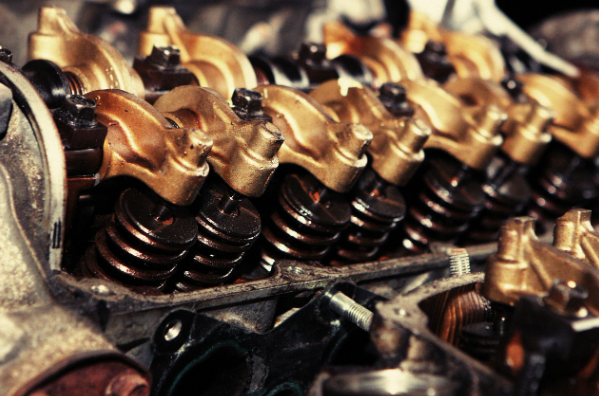Introduction: Understanding the Significance of Gasoline Additives
Gasoline, the primary fuel used in most vehicles, is a complex blend of hydrocarbons. While it’s capable of powering engines effectively, it doesn’t always provide optimal performance or longevity for the engine. This is where gasoline additives come into play. These are compounds that are added to gasoline to enhance its quality and performance, offering a range of benefits that can significantly improve the operation of a vehicle.
Gasoline additives are not a new concept. They have been used for several decades to enhance the performance, efficiency, and longevity of engines. They perform a variety of functions, such as cleaning engine components, enhancing fuel stability, reducing emissions, and improving fuel economy. These additives can be particularly beneficial for older vehicles, but they’re also increasingly being used in newer models to maintain their performance and extend their lifespan.
In the following sections, we delve deeper into the importance of gasoline additives, the problems they solve, when to use them, and how to choose the best manufacturer. We’ll explore the various types of additives, their benefits, and their potential drawbacks. Whether you’re a car enthusiast looking to optimize your vehicle’s performance, or simply a car owner seeking to extend the life of your vehicle and reduce maintenance costs, understanding the role and value of gasoline additives can be immensely beneficial.
So, let’s embark on this journey to discover the world of gasoline additives, their importance, and how they can revolutionize your vehicle’s performance and maintenance.
The Importance and Functionality of Gasoline Additives
Gasoline additives are a crucial component in maintaining and enhancing the performance of your vehicle. But why are they so essential? Let’s delve into the specifics.
Why gasoline additives are so important for the car
Gasoline additives play a pivotal role in improving the efficiency and longevity of your vehicle’s engine. They help in reducing the build-up of deposits in the fuel system, which can lead to improved fuel efficiency and reduced emissions. Moreover, they can enhance the octane rating of the fuel, providing better engine performance and reducing the risk of engine knocking.
What kind of problems FUEL SYSTEM ADDITIVES for gasoline engines solves
Fuel system additives are specifically designed to tackle a range of issues that can affect the performance and lifespan of gasoline engines. They can help to clean and protect the fuel system, removing and preventing the build-up of deposits in the fuel injectors, intake valves, and combustion chambers. This can lead to improved engine performance, better fuel economy, and reduced emissions.
Moreover, fuel system additives can help to prevent issues such as corrosion, which can damage the fuel system and lead to costly repairs. They can also improve the stability of the fuel, helping to prevent issues such as phase separation in ethanol-blended fuels.
So how to understand whether it is necessary to use fuel additives? What symptoms of car operation indicate such a need?
Signs of their failure to be the following:
– An increase in fuel consumption by 1 liter or more compared to normal indicators;
– Decrease in the dynamics of acceleration of the car;
– Heavy, hard engine work;
– Specific odor of unburned fuel of the car from the muffler;
– Unevenness of engine operation at idle;
– Black smoke at a sharp increase in speed;
– Difficulty starting a cold engine.

When to use FUEL SYSTEM ADDITIVES
While fuel system additives can be beneficial for all vehicles, they are particularly important for older vehicles and those that are used infrequently. Older vehicles may have a significant build-up of deposits in the fuel system, which can affect engine performance and fuel economy. Fuel system additives can help to remove these deposits and restore the engine to its optimal performance.
For vehicles that are used infrequently, fuel system additives can help to prevent issues such as fuel degradation and phase separation, which can occur when fuel is left in the tank for extended periods of time.
Where does contamination in the fuel system come from?
When we fill the tank with new fuel, we add gasoline to the residue from the previous fueling. This residue is located in the lower part of the tank and has a higher density. This situation occurs at every refueling, which at some point leads to a significant layering of viscous impurities. These are the main source of contamination of the fuel system.
How to choose the best manufacturer of FUEL SYSTEM ADDITIVES
When choosing a manufacturer of fuel system additives, it’s important to consider factors such as the quality of the additives, the reputation of the manufacturer, and the specific needs of your vehicle. Look for manufacturers that have a proven track record of producing high-quality additives, and read reviews from other customers to get an idea of the effectiveness of their products.
Moreover, consider the specific issues that you’re trying to address with your vehicle. Different additives are designed to tackle different issues, so it’s important to choose a product that is suited to your specific needs.
A modern manufacturer usually has the following minimum characteristics stated.
– Reduction of fuel consumption, increase in power and dynamics of the vehicle.
This is achieved, as a rule, by cleaning the fuel apparatus. In this case, the fuel is supplied and burns much better.
– Extending the service life of fuel equipment, turbochargers, catalysts, neutralizers and other equipment.
– Ensuring smooth and even operation of the engine.
This is achieved by preventing fuel detonation and the absence of delayed combustion. Noise and vibration are eliminated.
In some cases, vibration can be a source of breakdowns in a variety of parts and mechanisms of the car due to the resonance effect. This, at first glance, insignificant problem is dealt with by many research teams in the world.
– Reducing toxicity of exhaust gases, and reducing harmful emissions into the atmosphere.
Fuel system cleaning leads to complete combustion of the fuel. A minimum of harmful substances remains in the exhaust gases.
Thus, by using additives continuously, we can contribute to the protection of the environment.
– Increase of fuel octane number.
The quality of fuel at gas stations is not always stable. The race of manufacturers to reduce the cost of production and get super profits can play a cruel joke on buyers and their cars. One of the indicators of fuel quality is octane number. By correcting this indicator, the completeness of fuel combustion increases, the smoothness of driving improves, and the emission of gases with unburned fuel is significantly reduced.
Analyzing the manufacturers will help you make the right choice.
Conclusions
Gasoline additives are an essential component in maintaining the performance and longevity of your vehicle’s engine. They can help to improve fuel efficiency, reduce emissions, and protect the fuel system from damage. Whether you’re driving an older vehicle or a brand-new model, fuel system additives can provide a range of benefits that can enhance your driving experience and reduce your maintenance costs.
Practical Recommendations for Using Fuel System Additives
Now that we’ve understood the importance and functionality of fuel system additives, let’s look at some practical recommendations on how to effectively use these additives for optimal results.
Understand your Vehicle’s Requirements
Before selecting a fuel system additive, understand the specific requirements of your vehicle. Different vehicles may require different types of additives. For instance, older vehicles might benefit more from additives that focus on cleaning the fuel system, while newer models might require additives that enhance fuel stability.
Choose Quality over Price
While it may be tempting to opt for cheaper additives, it’s essential to prioritize quality over price. High-quality additives might cost more, but they provide better results in terms of performance enhancement and engine protection. Always opt for reputable brands that have positive reviews and a proven track record.
Regular Use for Optimal Results
For the best results, make it a habit to use fuel system additives regularly. While the frequency may depend on your vehicle’s make and model, a general rule of thumb is to add them every time you fill your tank. Regular use can help maintain a clean fuel system and prevent potential issues before they arise.
Monitor your Vehicle’s Performance
After using fuel system additives, monitor your vehicle’s performance closely. Notice any changes in fuel efficiency, engine power, and overall driving experience. This will help you understand the effectiveness of the additive and whether it’s addressing your vehicle’s specific needs.
Consult a Professional
If you’re unsure about any aspect of using fuel system additives, don’t hesitate to consult a professional. Whether it’s your mechanic or a representative from the additive manufacturer, they can provide valuable advice tailored to your vehicle’s specific requirements.
In conclusion, fuel system additives can significantly enhance your vehicle’s performance and longevity. By understanding your vehicle’s needs, choosing quality products, using them regularly, and monitoring the results, you can make the most of these valuable compounds.








